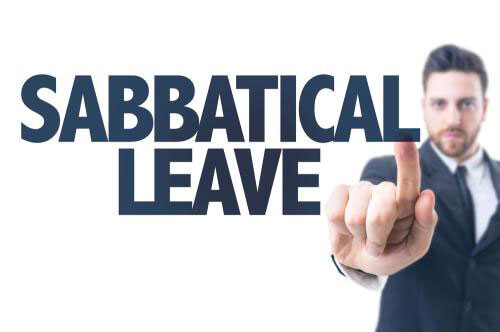
Question: My company is considering instituting an employee sabbatical program. Please provide some guidelines as to how the program should be structured and provide any pros and cons we should consider before deciding for or against implementing this program.
Thanks for your help.
Answer: Sabbaticals, which historically had been the domain of university professors and administrators, have gone mainstream in recent years. They are basically opportunities for employees to take a one-time extended break for a specified amount of time and then return to the same employer. However, the popularity of company-sponsored sabbaticals has dipped as companies have found difficulty administering the programs and the economy has slowed. That said, it can still be a wonderful benefit that both companies and employees can appreciate.
Although it may sound contrary to a company's best interests, allowing employees to take a sabbatical can stem burnout. The employee may return refreshed and ready to tackle new projects and challenges. Think about it: How many times have you felt that your two weeks of vacation weren't nearly enough? Also, if properly promoted throughout the company, I believe sabbaticals can be an excellent retention tool. Here's what I mean: All companies that use such a program have rules about which employees are eligible. Generally, employees are required to work at the company for a specified length of time. Anywhere from five to seven years is typical. (The Society for Human Resource Management has a sample Sabbatical Policy available to members. Consult the group's website for more information here: http://www.shrm.org/pages/default.aspx.) If everything else at the company is good, an employee who's thinking of making a move may be inclined to stay that extra year or two so as to be eligible for the sabbatical. It's also likely that an employee will feel more committed to a company that has given him the opportunity to take an extended leave and still return to the same job.
Now, for the downside. Firstly, will the sabbatical be considered paid time off or an unpaid leave? It may be tempting to offer unpaid time, but even high earners often feel they're just making ends meet. A suggestion to take time off unpaid may fall on deaf ears. Employees may not use the time, which will undermine the intention of the program. But giving employees weeks or months of paid time may likewise be restricting.
See Leave Policy: Paid Sabbatical for a sample of this on SHRM.org.
Consider the eligibility requirement. How long will you require employees to work at the company before receiving the sabbatical? Based on that period of time, do you have a lot of employees who would be eligible? Would you thus be forced to pay a lot of employees for their time off? If the answer is "yes," and your organization finds that cost prohibitive, there are still creative ways to implement it if your organization is really keen on the idea of the program. You could, for instance, pay only a fraction of the employee's salary during that time, say two-thirds or three-fourths the usual salary. (Remember, the objective is to not pay the entire salary, yet still pay enough to motivate the employee to take the time off.) Or say that you're providing an eight-week sabbatical after five years of service. You could require that employees take only half of this time the first year they're eligible, and allow them to take the other half the next year. You could allow them to take an additional two weeks (for a total of six weeks at once) if they use vacation time. This is time off that you would have paid for anyway. Now, you're just allowing the employee to take a block of six weeks, while only paying for an additional four. Don't forget to decide whether employees will consider receiving benefits while they're away.
Another consideration: Who will cover the employee's work while s/he is gone? Since you're granting the employee an extended leave, it's unfair to expect him or her to constantly check in and provide information while away. (And if that is the case, you should definitely pay 100 percent of the salary!) The employee and his or her manager will have to work out who will cover which duties until the employee returns. This is similar to what would occur with an employee on a vacation, but on a larger scale.
These are just some of the questions you need to ask before saying "yea" or "nay" to a sabbatical program. Hopefully, I've helped answer some of your questions. You should also consult your benefit plan administrator and conduct some more independent research before making a decision. Good luck.


